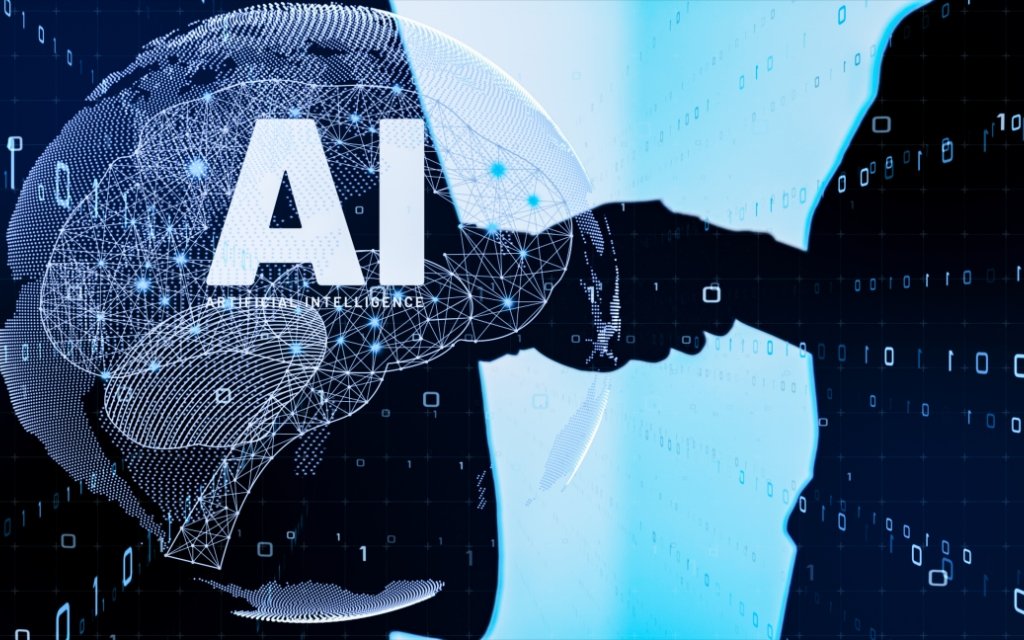What is Callidus AI legal? Revolutionize your practice with Callidus AI’s solutions, transforming law with innovative technology.
Artificial Intelligence, AI, is no longer a concept of the future reserved for science fiction movies or highly intellectualized research. Nowadays, AI is structuring industries in ways unimaginable to most of us. And guess what? It’s doing quite a number in the legal world, too. Now, I know what you’re thinking: “Legal work and AI? How does that even work?” That was my question when I first encountered Callidus AI, a platform designed specifically for legal professionals.
With that in mind, let’s dive deep into the world of Callidus AI legal, explore what it is and how it works, to understand fully why it may just be the future of the legal industry.
Table of Contents
What is Callidus AI Legal?
Callidus AI Legal is, at its most basic form, an AI-driven platform. This is meant to assist lawyers in conducting those other tasks that would otherwise need tediously hand-operated efforts: contract review, legal research, document analysis, and compliance management. But it does more than just automate processes; instead, it’s been designed to lend speed, accuracy, and efficiency to hitherto time-consuming and heavily detail-based legal work.
Visualize having to go through a 100-page contract and underlining important clauses with a colored pen for hours in order to comply with ever-evolving regulations. Sounds exhausting, right? Imagine getting it all done within minutes with the help of intelligent AI algorithms without letting out a single comma. That’s where Callidus AI steps in.
But before I get too carried away, let’s break this down a little more.
My First Encounter with Legal AI
I must say, when I came across the AI making their foray into the strata of the legal world, I was incredulous. Having spent a reasonable number of years doing some degree of legal research during my formative years, I knew how much nuance and interpretation goes into reviewing documents or doing case law research. Is an AI capable of doing that?
First time testing Callidus AI, I was blown away. Give it a long contract-to be specific, the kind that would take you a few hours to work your head around it-and in a few minutes, not only does it key out key clauses, but even flags potential compliance issues based on the latest update in regulations. The accuracy is bang on target, and what’s more, it gives me hours of my day back.
That’s when it really hit me: we aren’t talking about replacement of lawyers by AI; we are talking about enhancement of their capabilities. This thing, Callidus AI, is like having an ultrapowered assistant who never sleeps, never gets tired, and never misses a deadline.
How Callidus AI Works in Legal Services

Now, the details: How does Callidus AI Legal work, and what makes it unique?
Contract Review and Analysis
Remember those sleepless nights in law school, poring over contracts in search of that one clause that makes or breaks a case? Yeah, me too. Callidus AI takes that pain away. Using advanced NLP that can scan through contracts in the blink of an eye, it flags key clauses, areas of possible risks, and areas that really need more scrutiny.
For example, if your client needs assurance that a given contract is GDPR-compliant, Callidus AI can brings to light areas that stand in contrast with updated data privacy regulations and propose changes. It’s like a second pair of eyes-being brilliant-on your work.
Legal Research
Legal research is a cornerstone of good legal work, yet it’s also notoriously time-consuming. Callidus AI can sift through the vast databases of case law and legal statutes, pulling out for you the most relevant cases and summarizing them. It is not just a question of speed, since AI doesn’t get tired, which means that you can have confidence among hundreds of cases, it won’t miss one obscure case that might be pivotal to your argument.
Compliance Management
Regulatory compliance means hard work in a sea of change. Laws have been changed, regulations have been revised, and efforts to keep up seem to be full-time jobs. Callidus AI continuously tracks the activity from a legal point of view to ensure that your contracts and documents get updated with the latest in compliance, be it GDPR, CCPA, or whatever other alphabet soup of regulations. Callidus AI has your back.
Benefits of Using Callidus AI in Legal Services
Time-Saving
Let me be candid: legal work is always a race against time. Be it an independent practitioner or perhaps operated under the framework of an immense law firm, time is the main ample cost. Callidus AI trims down time spent on activities such as ‘document review’ or ‘legal research,’ enabling an attorney to divert this time to higher value creation. You are saving not just minutes but hours every week.
Accuracy
Humans err. We get tired, or we get distracted, or we sometimes just plain miss things. AI doesn’t. Callidus AI makes sure nothing falls between the cracks, from the tiny clause in that contract to the obscure legal precedent that may potentially influence a case.
Cost-Effective
Think of it this way: one hour invested in doing something manually about the law is one lost hour that you could invest in more strategic, billable work. By shaving off time on routine tasks, Callidus AI amplifies the legal professional’s productivity, in other words, profitability.
Legal Ramifications of AI Use: Friend or Foes?

Now, I wouldn’t be doing my due diligence if I didn’t discuss some of the concerns about AI in the legal profession. After all, with new technology comes new challenges.
Data Privacy
One of the biggest causes of alarm when it comes to using AI in the legal line is data privacy. Usually, legal documents bear sensitive information, and you need to be absolutely assured your AI platform handles that kind of data securely. Thankfully, with platforms such as Callidus AI, their design for stringent data protection means all information processed on it is secure and aptly compliant with privacy laws such as the GDPR.
AI Bias
Another concern is the possibility of bias in AI algorithms. For as much more quickly as AI can process information compared to a human, it can also pick up any biases in that information. This is something developers of platforms like Callidus AI are continually working to address: making sure AI-driven legal analysis is fair and as impartial as possible.
Complying with Regulations
With the rise in the integration of AI in legal processes, it is also very probable that new regulations regarding the use of AI itself will be passed into law. While AI can help achieve better, easier compliance with existing laws and regulations, it is equally important to be informed about future legal standards regarding the use of AI.
My Journey with Callidus AI: The Game Changer
If I am being completely honest, I was a bit resistant to AI when it first started making waves in the legal world. I was used to doing things a certain way and enjoyed the process of manually combing through documents and content with the knowledge that no stone would ultimately be left unturned. The more I used Callidus AI, the more I came to realize it wasn’t about taking away the work I loved; instead, it was about making that work better and faster.
I could never forget the first time I actually finished a contract review with Callidus AI. A client had sent over a 50-page agreement that was just so thick with legal jargon. Usually, that would’ve taken me at least an entire afternoon to go through. But with Callidus AI, I had a full analysis of it in less than an hour. I also had more available time to concentrate on strategic decision-making and advising my client rather than getting bogged down in minutiae. It was revolutionary.
Callidus AI vs. Traditional Legal Workflows
Let’s consider the traditional legal workflow and then compare it with one empowered by Callidus AI:
| Traditional Workflow | Callidus AI Workflow |
|---|---|
| Manual reviews of contracts take several hours and sometimes even days | It only takes a few minutes to review the contract |
| Legal research requires combing through the databases quite often manually | AI pulls up the relevant case law in just a snap of fingers |
| Compliance updates are to be tracked consistently | AI continuously tracks changes in regulations |
| More human error is likely to occur | AI guarantees more accuracy and, therefore, more consistency |
As you can see, the difference is like night and day. While there is merit in traditional workflows, it’s very clear that the future belongs to AI-enhanced legal work.
Frequently Asked Questions
1. What is Callidus AI, and how does it support the work of legal professionals?
Callidus AI is an AI platform that simplifies workflows in the legal field by providing efficiency and precision in delivering legal services. It automates tasks such as reviewing documents and performing legal research, freeing up professionals to work on higher-value activities. This tool also keeps contracts and documents current with the latest in compliance regulations.
2. Callidus AI: How does it protect data?
Callidus AI considers data privacy and protection very important; hence, it enforces comprehensive and strict security practices that are fully compliant with significant laws like the GDPR. It has been built to support susceptible legal information in total security, with an assurance that all the data processed within the platform will be shielded from unauthorized access and misuse.
3. What does Callidus AI do to deal with AI bias in legal analytics?
Callidus AI developers are in constant effort to reduce bias in its algorithms. Refining and updating machine learning models will lead them closer to not discriminating against analysis in the legal realm. Thus, their commitment towards minimizing bias helps the platform provide a much better-balanced assessment of legal documents and information.
4. How does Callidus AI stay on top of the changing regulations for legal compliance?
Callidus AI continuously monitors the changes in the legal framework by updating the related compliance information in real-time. This proactive approach means that users can maintain legal documentation current with the latest laws and standards. It mitigates the risk of non-compliance and ensures that your clients work constantly within the bounds of the law.
Conclusion: Should Callidus AI be considered the future of law?
So, is Callidus AI the future of law? In my opinion, absolutely. But it’s not about replacing lawyers or automating away the heart of legal work. It’s about enhancing what we do, making us more efficient, accurate, and, ultimately, more valuable to our clients.
Artificial intelligence does not come to usurp the profession of a lawyer; it has come to disrupt the same. From my standpoint, Callidus AI Legal platforms have been leading that charge.
If you’re a legal professional who’s tired of spending hours on tedious tasks, I highly recommend giving Callidus AI a try. It might just change the way you practice law—and save you a lot of time in the process.
Disclaimer
This article is for informational purposes only and should not be considered legal advice or a substitute for professional consultation. Callidus AI and its features are continually evolving, and while we strive for accuracy, changes in AI technology and legal regulations may affect the information’s accuracy. Readers should seek professional legal counsel for specific advice relevant to their situation. The views expressed are solely those of the author and do not represent any legal institution or Callidus AI.
Additional Resource
If you’d like to dive deeper into the world of legal AI, here are a few resources you might find helpful:


